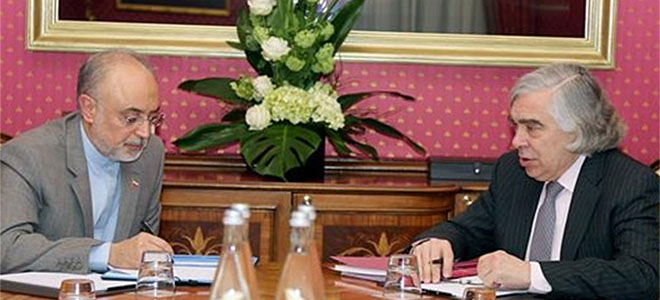In his pivotal contribution to the US-Iran nuclear negotiations, Ernest Moniz, US Secretary of Energy, offers a role model of how to integrate science and politics.
by Roger Pielke, Jr.
The Guardian
April 8, 2015
He has been called President Obama’s “secret weapon” and a “rock star”, and his long hair has garnered comparisons to the distinctive coiffure of Javier Bardem, who played a psychotic assassin in the 2007 movie “No Country for Old Men.” I write, of course, of Ernest Moniz, the US Secretary of Energy, who has played a pivotal role in the ongoing negotiations with Iran over its nuclear programme. Watching Moniz, we can learn a lot about successfully integrating science and politics.
Moniz, a PhD physicist from MIT, was brought into the negotiations ostensibly to provide a US counterpart to Ali Akbar Salehi, who leads Iran’s Atomic Energy Organization. Salehi is another MIT-trained physicist who earned his PhD at the same time that Moniz began his teaching career at MIT. Moniz brings more than just scientific expertise to the negotiating table; he has considerable experience working in political settings, having put in earlier stints at the Office of Science and Technology Policy and at the Department of Energy as an undersecretary.
The Obama administration has also used Moniz as its chief public advocate for the proposed deal. Moniz has appeared on the major US Sunday talk shows and featured at Monday’s White House press briefing. The central roles played by Moniz, and Salehi too, provide us with an opportunity to reflect on science advice at the highest levels of national policy and international diplomacy. I draw at least three lessons from their example:
“Science advice” is often a misnomer
It would be a stretch to label Moniz’s role in the Iran negotiations as that of a “science adviser”, and it would diminish his contribution by suggesting he is offering “science advice.” Instead, Moinz is fully involved in political questions with scientific and technical content. At the same time he is also fully engaged in the procedural aspects of the deal, involving issues such as surveillance, verification and enforcement. As some observers noted “The men parsing the scientific details did not then have to summarise them in layman’s language for the politicians who were negotiating the deal: they were themselves the politicians negotiating the deal.
When science becomes successfully integrated in a political process, the focus shifts away from questions about evidence and towards questions of action. Moniz is playing a supporting role in helping to advance the interests of his government. The negotiations had of course been long underway between the US State Department and the Iranian Foreign Ministry before Moniz was brought in to help finalise a proposed deal. Moniz was part of the supporting cast behind President Obama and Secretary of State John Kerry. Read more …


